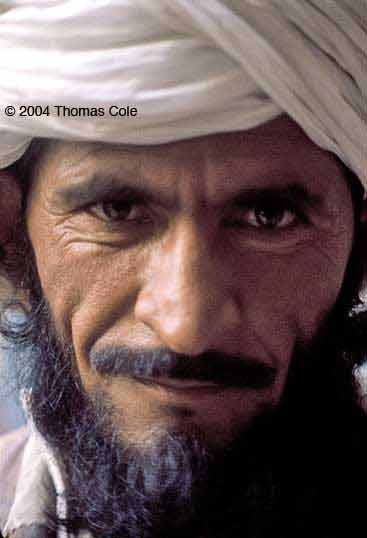
Reclaiming Pashtun Identity
Reading time: (Number of words: )
The strategic location of the Pashtun tribal belt has put it at the cross roads of imperialist nations’ ambitions, and military advances for centuries. The efforts of the Russians and the British in the Great Game, and the United States and Soviet Union during the cold war, coupled with a tribal structure and feudal system and inherent warrior nature of the Pashtuns, thwarted and hindered the enlightenment that led the intellectuals and philosophers of Europe through centuries long struggle to shatter the grip of feudalism in favor of constitutional rights, civil liberties, separation of church from state, thereby producing the grounds for a functioning civil society.
The tribal life and their unforgiving and sometimes vindictive, multi-generational inter tribal feuds were based on the Pashtun’s uncompromising and hard-line code of honor called Zan, Zar and Badal (woman, gold and revenge).
Such geographic and cultural conditions of the Pashtuns have produced the grounds for regional actors and players to manipulate these traits for their self serving, strategic goals such as the institutionalization of radical religious madrassas, thus providing a breeding ground for terrorists, who mainly work for the notorious and clandestine services of Pakistan’s version of the CIA, the ISI.
Take the Taliban being a case in point, based on Ahmed Rashid’s Book, Descent into Chaos. In Islamabad with a population of only one million, there are 127 madrassas and 42 new ones being created, one new one every week in the capital, itself. Since September 11, 2001, Pashtuns feel they have become the most vilified ethnic group in the world. They are angry, frustrated and now want to reclaim their identity from being lumped with the Taliban, and as perpetrators of terrorism and suicide bombings. Most Afghan prisoners held by the Americans in Guantanamo Bay in Cuba or at Bagram Air Base near Kabul are Pashtun.
As a young boy, I had violent tendencies, the hot blood of the Pathan [Pashtun] was in my veins. However, in the words of the famous non violent Pathan activist and leader Khan Ghafar Khan, also known as the Frontier Ghandi: " Is not the Pathan amenable to love and reason. He will go with you to hell if you can win his heart, but you cannot force him even to go to heaven. Such is the power of love over the Pathan".
In Pakistan’s Federally Administered Tribal Areas also known as FATA, literacy rate is a shocking 2% compared to the national average of 34%. I believe the much needed and long overdue renaissance in the Pashtun tribal belt, currently the subject of a multi-billion dollar USAID package, can be realized through individuals and NGOs equipped with the necessary means to accomplish that end.
The current world attention to the region has provided a golden opportunity for Afghans to greatly enhance their struggle to wrench the people from the ubiquitous ignorance prevailing in the region by awakening the peasantry, reforming the madrassas and overly conservative priests and not let it fall prey to the agendas of stateless terrorist organizations like Al Qaeda, not only saving the region from the radical brand of Islam producing suicide bombers and fundamentalist Jihadi leaders, but also prevent any future 9/11 attacks which emanated from the same region for the same reasons due to lack of socio economic development , notwithstanding congressman Charlie Wilson’s insistence and warnings, but the US abandoning the region after the fall of the soviet union and end of the cold war.
I first realized my tendency to lean more toward a non-violent temperament, when during the war with the Soviets I took part in a campaign with Commander Haqqani (back then On CIA’s payroll to fight the Soviets and now on the United State’s most wanted list as the most prominent and fiercest Taliban commander fighting against the coalition forces in Afghanistan). This was in Paktika in the 80’s when he handed me a pistol to take one of the captured communist soldiers behind the rock and shoot him, entitling me to have performed true Jihad and increasing my probability of entering paradise, but after seeing the look in the soldier’s eyes, as a fellow human, I refused.
In the footsteps of our great non violent Pashtun leader, Khan Ghafar Khan, also known as the Frontier Ghandi, I would like to encourage the Afghans in reclaiming the inherently peaceful reputation of the Pashtuns through a variety of civil, social, educational, and political projects and then repeat the famous words of the great leader: "I have one great desire. I want to rescue these gentle, brave, patriotic people from the tyranny of the foreigners who have disgraced and dishonored them. I want to create for them a world of freedom, where they can live in peace, where they can laugh and be happy.
I want to kiss the ground where their ruined houses once stood, before they were destroyed by savage strangers. I want to take a broom and sweep the alleys and the lanes and I want to clean their houses with my own hands. I want to wash away the stains of blood from their garments. I want to show the world how beautiful they are, these people from the hills, and then I want to proclaim : show me, if you can, any gentler, more courteous, more cultured people than these."
Said Omar Akbar is the co-director of "The Shal Group" an NGO active in Kunar province and Yale World fellows program candidate.

Poems for the Hazara
The Anthology of 125 Internationally Recognized Poets From 68 Countries Dedicated to the Hazara
Order Now








